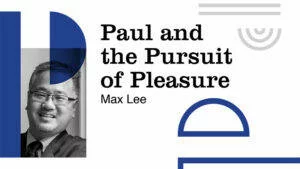It has been a long time since I have so thoroughly enjoyed a theology book. Abraham’s book is written with verve and vitality. The prose simply sparkles. The mix of standard academic terminology with “bog Irish” and homespun Texan is delightful. The book is by turns both witty and worshipful, both convicting and fun. It is insightful and incisive, plainly spoken yet deeply thoughtful.
It is eminently readable, but it is also informed by decades of careful research and deep reflection on core issues. Abraham’s historical erudition and analytic philosophical expertise are put to good use in the service of a profoundly theological enterprise. The result is simply wonderful. I hate to sound like a fan-boy, but, seriously, this is an excellent book. I stopped at several places to thank God for it, and to pause to worship the God to whom it points. That’s what theology should make us do, and that’s what this book does.
In what follows, I want to focus on Christology and press Abraham to help us think a bit more closely about God’s work in and as Christ.
Abraham on Atonement
When we come to consideration of the work of Christ, Abraham notes that there is “no canonical doctrine in this arena” (p. 84); no single “theory” (or “model” or suchlike) can claim anything close to creedal authority. Abraham says that atonement is,Was the death of an incarnate divine person—more concretely, the person of the incarnate Son—necessary for atonement? at base, about the “repair of broken relationships” between “estranged persons” (p. 86). Ultimately, atonement is all about the repair of the broken relationship between God and human sinners. He decisively rejects “three commonly accepted paths in the folk religion of our day”: the moral sentimentalism that fails to take sin and evil with full seriousness, the theological sentimentalism that assumes that God does not care all that much about sin but instead is willing to overlook it, and the anthropocentric moralism that tries to take the problem seriously but then attempts to resolve it with reparations from the human side. Against these views, Abraham maintains that sin and evil must be taken seriously. He insists that Scripture presents God as “passionate in righteous judgment and in love,” and to say that God “can forgive and just pass” over sin is to “trivialize God’s judgments on evil; it is to have a frivolous doctrine of God” (p. 87). Against these misguided approaches, Abraham says that three theological conditions must be met in atonement theorizing. First, “our vision of atonement must be rooted in the mercy, compassion, loving-kindness, and utter goodness of God” (p. 88). If our take on atonement makes God out to be a monster, or even casts a shadow of doubt on divine goodness, then, yes, we can conclude that something has gone wrong. Second, our theology cannot “trivialize evil” (p. 88) but instead must come to share God’s own assessment of the grievousness of it. Third, our theological vision “must spiritually and psychologically foster the deep healing of the human soul” (p. 88).
Was the death of an incarnate divine person—more concretely, the person of the incarnate Son—necessary for atonement? Abraham affirms that it was necessary in some sense, but he is aware that it is hard to say precisely just what that sense is (pp. 89–91). He insists further that we should take the full range of biblical imagery into account; thus any acceptable doctrine of atonement will include not only the sets of texts that motivate “exemplar” or “moral influence” theories and “Christus Victor” views but also the biblical witness to substitution and propitiation: “Christ bore for us the wrath of God” (p. 92).
But what Abraham won’t accept are the versions of the doctrine of penal substitution that are common in many contemporary Reformed and evangelical circles. “We cannot say that God was killing Jesus or punishing Jesus. Jesus was an innocent agent who was brutally executed… to claim that the real actionAbraham complains that the “radical shift in categories” from the language of punishment to the language of sacrifice is sudden, undersupported, and “illegitimate” (p. 96). here is that of divine punishment, an action that supervenes on the human actions involved, is morally intolerable” (p. 89). Abraham rejects the view of Thomas Schreiner; Schreiner says that due to the reality of retributive justice “there must be a penal substitute,” and “the punishment and penalty we deserved was laid on Christ instead of us” to “satisfy God’s justice” (p. 95). Against this teaching, Abraham raises several objections. Granting the reality of retributive justice, “it is not legitimate to transfer the punishment from the guilty to the innocent,” for “retribution requires that the guilty be punished not the innocent” (p. 95). Moreover, Abraham complains that the “radical shift in categories” from the language of punishment to the language of sacrifice is sudden, undersupported, and “illegitimate” (p. 96). Furthermore, in the gospel accounts “it is the human agents who crucify Jesus; it is not the Father”; Jesus “voluntarily gave himself up into the hands of his Father,” and he does so while citing a “psalm of radical trust in God” (p. 96). According to the common view of penal substitution, Abraham concludes that the Father “does not just use evil providentially to do good,” for on such a theory the Father “actually engages in evil” (p. 96). Beyond this, a strict doctrine of penal substitution leaves us with only two options: either universal salvation or limited atonement. Since neither universalism or limited atonement is biblically and theologically acceptable, then we must reject the strict doctrine of penal substitution.
So what is to be done with the biblical teaching of substitution and propitiation? Abraham does not think that we should jettison the language of penal substitution. Instead we should actually retain it; it is too prevalent in Scripture to cast off, and it speaks very powerfully. The “solution,” says Abraham, is to “set aside the quest for a formal theory of the atonement” (p. 97). We need to “retain the imagery and find a better way to interpret it” (p. 97). So we are to “read the penal imagery as a magnificent way to capture the sense of joy and gratitude that emerges when people look upon themselves as guilty lawbreakers before God, are exposed to the objective action of God in Christ, and find the language of penal substitution a fitting analogical way to express their sense of relief and release” (p. 97).
Probing Further
What are we to make of this? I find myself in hearty agreement with Abraham on many points. I concur with him that we should reject the sentimentalism that is so prevalent—but also so very tempting—in our contemporary Western context. I’m fully with him when it comes to the theological desiderata that he summarizes so well:I also want to affirm, again with Abraham, that we should retain the full range of biblical imagery that helps us make sense of the work of Christ. divine goodness is absolutely bedrock and non-negotiable (and thus any theory of atonement that besmirches that is fatally flawed), an adequate view of God’s holy love grounds not only trust in divine mercy but also divine justice, and any account of atonement really has to be good news. I also want to affirm, again with Abraham, that we should retain the full range of biblical imagery that helps us make sense of the work of Christ. Amen to all that.
I also share a good bit of Abraham’s leeriness with respect to common “Reformed” and “evangelical” articulations of penal substitution. I too find those problematic—in some cases, deeply problematic. I think that Abraham raises some very important objections, and I am completely with him about the need to reject both universal salvation and limited atonement (and for the reasons that he articulates). So amen to all that too.
But I confess that I’m not entirely satisfied with his proposal for how to account for the language of penal substitution. I’m sure that it would help to hear more, but at this point it sounds to me like his proposal amounts to something akin to an “experiential-expressive” account of Christian doctrine (cf. Lindbeck). He wants to understand this language along the lines of analogy, but it is less than obvious either how the analogy works or what is gained by the appeal to analogy (also: who actually rejects analogy with respect to atonement?). Additionally, I am not persuaded either that there is only one account that is the doctrine of penal substitution or that the popular expressions of it are the only or best theories. Perhaps we should take a slightly broader view of what counts as penal substitution; suppose that we think of penal substitution as any view according to which human sinners do not receive punishment for their sins due to the fact that Christ suffers hard treatment (in accordance with the “plan and foreknowledge of God,” cf. Acts 2:23; 4:23). This is not an implausible or ad hoc notion (for a recent take along these lines, see the defense of penal substitution offered by William Lane Craig). This broader view leaves open a whole range of possibilities. It is neutral on the question “is the death of an incarnate divine person necessary for the salvation of sinners?” It allows that the hard treatment suffered by Christ is a substitute for retributive justice rather than a supposed exercise of retributive justice itself. It is not committed to the notion that Christ was punished by the Father at all. It most decidedly does not entail the conclusion that the atonement is to be understood in the sort of narrowly pecuniary ways that generate the “universalism or limited atonement” dilemma. Historic Protestant—indeed even some scholastic Reformed—theology offers options that are more subtle and sophisticated than the all-too-common contemporary versions. In other words, while the common contemporary expressions truly are beset with problems, we need not think that these exhaust our options with respect to substitutionary atonement.
Moving forward, I suggest that we receive with gratitude Abraham’s critical observations, but then seek to engage further with the full resources of the Christian tradition (including Protestant scholasticism) as we seek to retrieve and employ those insights. Let me say again that I’m deeply appreciative of Abraham’s book. I look forward to seeing his work developed further.








Comments
Be the first one to make a comment!